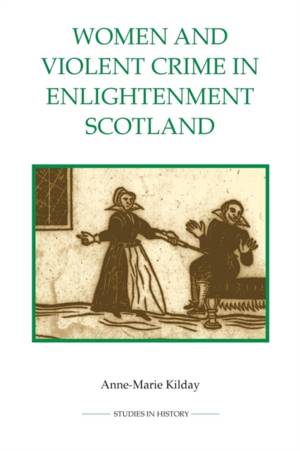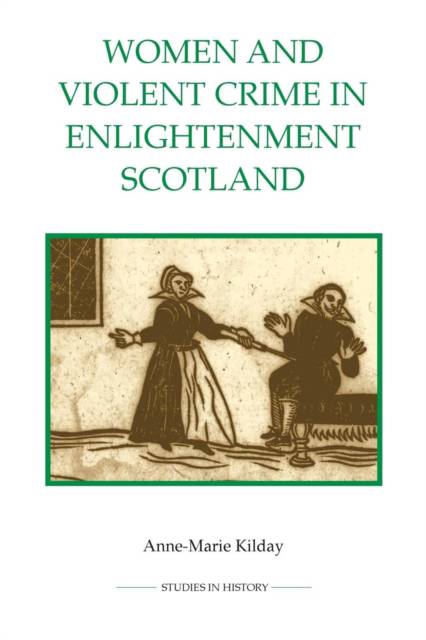
- Afhalen na 1 uur in een winkel met voorraad
- Gratis thuislevering in België vanaf € 30
- Ruim aanbod met 7 miljoen producten
- Afhalen na 1 uur in een winkel met voorraad
- Gratis thuislevering in België vanaf € 30
- Ruim aanbod met 7 miljoen producten
Zoeken
Omschrijving
This book offers important new insights into the relationship between crime and gender in Scotland during the Enlightenment period. Against the backdrop of significant legislative changes that fundamentally altered the face of Scots law, Anne-Marie Kilday examines contemporary attitudes towards serious offences against the person committed by women. She draws particularly on rich and varied court records to explores female criminality and judicial responses to it in the eighteenth and early nineteenth centuries.Through a series of case studies of homicide, infanticide, assault, popular disturbances and robbery, she argues that Scottish women were more predisposed to violence than their counterparts south of the border and considers how this relates to the contemporary drive to civilise' popular behaviour and to promote a more ordered society. The book thus challenges conventional feminist interpretations that see women principally as the victims of male-controlled economies, institutions and power structures, and calls for a major re-evaluation of the scope and significance of female criminality in this era. It will be of interest to scholars, students and those interested in the fields of gender studies, social history and the history of crime. ANNE-MARIE KILDAY is Pro Vice-Chancellor and Dean of the Faculty of Humanities and Social Sciences and Professor of Criminal History at Oxford Brookes University.
Specificaties
Betrokkenen
- Auteur(s):
- Uitgeverij:
Inhoud
- Aantal bladzijden:
- 194
- Taal:
- Engels
- Reeks:
- Reeksnummer:
- nr. 58
Eigenschappen
- Productcode (EAN):
- 9780861933303
- Verschijningsdatum:
- 18/06/2015
- Uitvoering:
- Paperback
- Formaat:
- Trade paperback (VS)
- Afmetingen:
- 156 mm x 234 mm
- Gewicht:
- 276 g

Alleen bij Standaard Boekhandel
+ 119 punten op je klantenkaart van Standaard Boekhandel
Beoordelingen
We publiceren alleen reviews die voldoen aan de voorwaarden voor reviews. Bekijk onze voorwaarden voor reviews.








